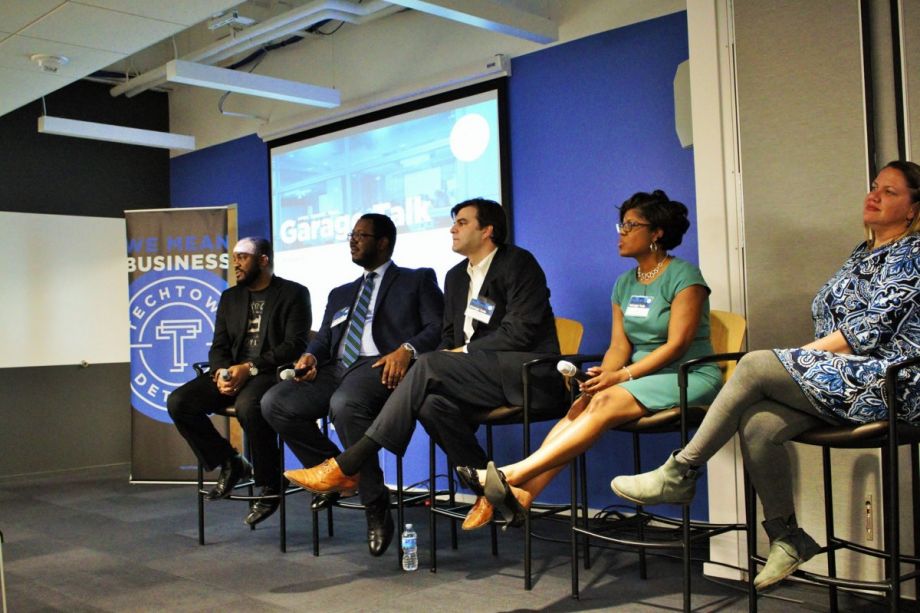The high-tech sector is notorious for its lack of diversity. White, Asian and male employees are over-represented among high-tech employees, and the further up you go, the more white and male it gets: 83 percent of high-tech executives are white, less than 5 percent are black and less than 5 percent are Hispanic. As the nation’s fastest-growing and most diverse communities, can cities make a difference and crack that nut?
The answer may be yes, looking at some of the patterns in a new report from the Institute for a Competitive Inner City (ICIC), “Creating Inclusive High-Tech Incubators and Accelerators: Strategies to Increase Participation Rates of Women and Minority Entrepreneurs.”
“The lack of really robust data was surprising, as was the variation in diversity performance,” says ICIC’s Kimberly Zeuli, the lead author of the report. “What we wanted to say is, are there some organizations out there that are successful on diversity, and there are, so what are they doing right and what are the barriers for the other ones?”
To compile the report, made possible by JPMorgan Chase’s Small Business Forward initiative to support small businesses, ICIC researchers interviewed 25 national and international entrepreneurship experts and 51 incubator and accelerator managers in late 2015 and early 2016. Diversity numbers varied widely among incubators and accelerators, from 6 to 42 percent women-owned firms, and from 14 to 39 percent minority-owned firms.
With such a small sample size, data wasn’t quite robust, but some patterns did start to emerge. The presence of public funding, for instance, has made a difference in increasing diversity.
“I don’t think there’s enough pressure put on incubators and accelerators about diversity from their funders,” Zeuli says. “Some of the incubators that have public funding, since public funders always care about diversity, they have had that pressure put on them.”
TechTown in Detroit and 1776 in Washington, D.C., were two incubators Zeuli mentioned that had performed well on diversity that have also had public funding from various sources, including local public-private partnerships and local, state and federal governments.
Funder pressure to consider diversity usually leads to at least one key request — to actually track diversity. Again, it’s a small sample size, but the ICIC team found that incubators whose funders asked for diversity tracking have had it more ingrained in their DNA.
That said, there was still plenty of lip service. Everyone ICIC talked to agreed diversity was a problem, but it clearly didn’t move everyone to do something about it. Significant barriers remain to diversity in high-tech incubators and accelerators, which ICIC grouped into four areas: recruitment challenges (“We heard there is a pipeline of women- and minority-owned firms,” Zeuli says. “It’s an outreach issue.”); biases in selection and application processes; program design (“Many programs do not fit the lifestyles of most entrepreneurs,” Zeuli adds); and even just organizational culture.
“Incubators and accelerators may be creating a culture and an organization that women and minorities might not feel like would be a good fit for them,” says Zeuli.
The ICIC report also categorized those that did do something to increase diversity.
Expanding recruitment through diverse leaders and partners would help in terms of outreach as well as culture. The report suggests that incubators and accelerators with diverse management teams are more successful in attracting diverse entrepreneurs in part because managers have diverse networks, while also serving as successful role models. They didn’t look into it for this report, but Zeuli says it would be interesting in a follow-up report to see if diverse-led incubators or accelerators have a more difficult time attracting their own funding. ICIC found no robust data on diversity in incubator or accelerator management or founding teams.
Building pipelines with diverse universities also helped some incubators and accelerators perform better on diversity. 1776, for instance, has a partnership with Howard University, a historically black college.
Adjusting the selection process is another strategy with a lot of options in the report. TECH Fort Worth, where 25 percent of clients are women or minorities, does not use application forms or a selection committee. Prospective clients instead speak directly with Darlene Boudreaux, the executive director, or their assistant director, and then they make the decision whether to accept them or not.
When creating an inclusive culture, little things can make a big difference, such as programming workshops and training sessions at multiple times in the day to accommodate different lifestyles. The University of Central Florida Winter Springs Incubator established an informal shared-lunch program in response to feedback that their Hispanic entrepreneurs came from a culture where most prefer to eat with company.
It can be a difficult balance, at times. It’s important not to push “diversity” as a catchphrase, making it seem like women- and minority-owned firms are token symbols of diversity rather than an integrated part of a community. One strategy to deal with that is making the business case for diversity. At 1776, which has over 40 percent representation of women and minorities, leaders communicate externally and internally that diverse teams often generate higher returns on investment and have greater success overall.
Perhaps the ultimate measure of success is something still that needs further study, which is whether or not incubators and accelerators allow women- and minority-owned startups to access capital as easily as white male-owned startups. Village Capital, a global accelerator based in Washington, D.C., has even explored the radical step of removing the pitch process entirely from its model. Instead, Village Capital uses a peer-selected investment model, in which entrepreneurs in each cohort make investment decisions by evaluating each other at the end of the program. About 36 percent of their investments using this model are in women-led companies, which is significantly higher than the national average of 3 percent.
But overall, there’s still plenty of exploration to do on the capital question. The report didn’t dig into it deeply, but Zeuli says data show that women and minority firms at incubators and accelerators are still not able to attract as much capital.
The Equity Factor is made possible with the support of the Surdna Foundation.

Oscar is Next City's senior economic justice correspondent. He previously served as Next City’s editor from 2018-2019, and was a Next City Equitable Cities Fellow from 2015-2016. Since 2011, Oscar has covered community development finance, community banking, impact investing, economic development, housing and more for media outlets such as Shelterforce, B Magazine, Impact Alpha and Fast Company.
Follow Oscar .(JavaScript must be enabled to view this email address)

















